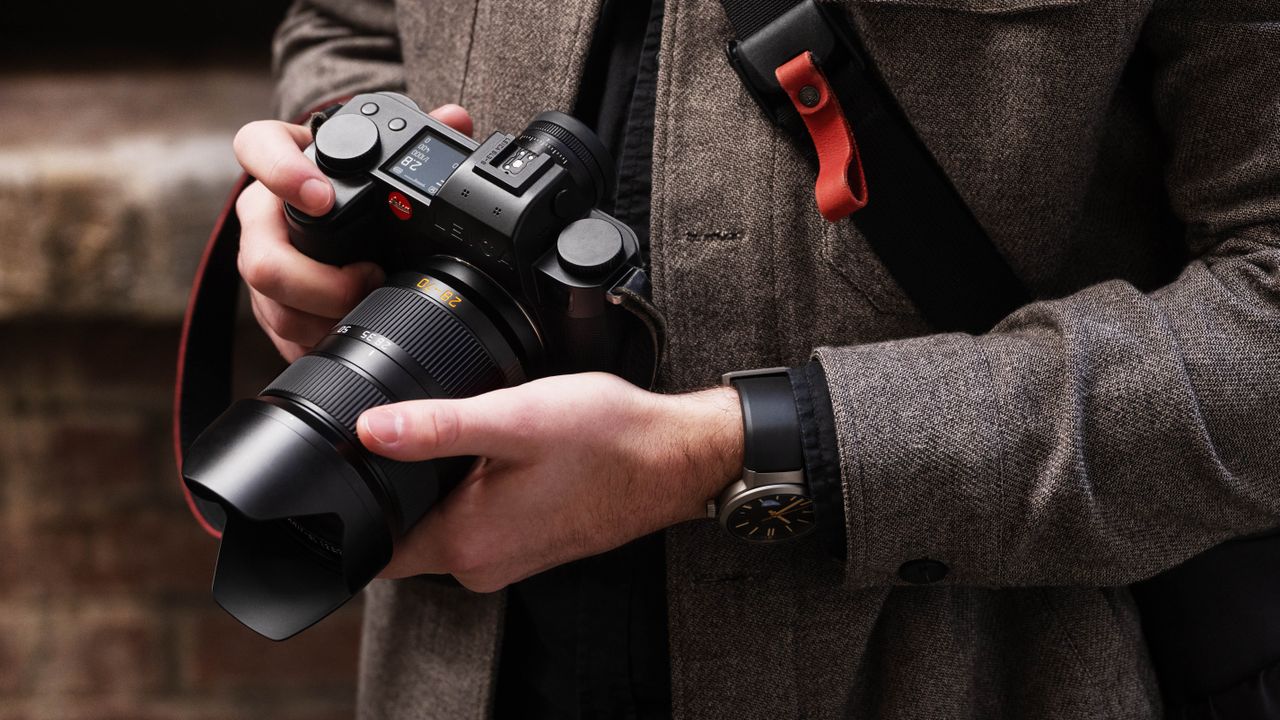The standard 24-70mm f/2.8 zoom lens is a staple for many photographers, offering impressive versatility and a bright aperture. However, these lenses are often known for their considerable weight. Recognising this, manufacturers have been developing alternatives that maintain key features but boast a lighter, more portable design. The Leica Vario-Elmarit-SL 28-70mm f/2.8 Asph is one such alternative.
By reducing the focal length by just 4mm at the widest end, Leica has managed to create a lens that is noticeably shorter and around 33% lighter than the Leica SL Vario-Elmarit 24-70mm f/2.8 Asph. This not only saves space in your camera bag but also represents a significant cost saving, coming in at approximately 40% less than Leica’s standard 24-70mm f/2.8 lens.
According to Leica, the new 28-70mm lens is not only the lightest standard zoom lens in the SL series but also delivers the highest resolving power within the range.
Hands-on Experience
During a recent photography event, the opportunity arose to test the Leica 28-70mm f/2.8 lens with the SL3 camera. The initial impression was of a lens that is both impressively sharp and exceptionally well-constructed.
Leica SL 28-70mm f/2.8: Key Specifications
Here’s a breakdown of the lens’s key features:
- Focal Length: 28-70mm
- Aperture: Minimum f/2.8, maximum f/22
- Mount: L-Mount
- Format: Full Frame
- Minimum Focus Distance: 19cm at 28mm, 38cm at 70mm
- Macro Reproduction Ratio: 1:3 (0.3x magnification)
- Lens Design: 16 elements in 12 groups
- Aperture Blades: 9
- Autofocus: Yes
- Stabilisation: No
- Weather Seals: Yes
- Filter Size: 67mm
- Dimensions: 73 x 102mm
- Weight: 572g
As an L-Mount lens, the Leica Elmarit-Vario-SL 28-70mm f/2.8 Asph is compatible not only with Leica’s SL series cameras but also with L-Mount bodies from Panasonic and Sigma, thanks to the L-Mount Alliance.
Price and Availability
While Leica lenses are typically positioned at the higher end of the market, the 28-70mm f/2.8 offers a more accessible price point compared to the brand’s 24-70mm f/2.8, retailing at around £1,650. This is even less than Panasonic’s Pro series 24-70mm f/2.8, but more expensive than Sigma’s 24-70mm f/2.8 Art II and significantly more than Sigma’s 28-70mm f/2.8. The lens is available for pre-order from various retailers. It is also offered as a kit option with the Leica SL3 camera.
Design and Handling
The Leica Vario-Elmarit-SL 28-70mm Asph has been engineered as a lighter and more compact alternative to the traditional 24-70mm f/2.8 lens. When placed side-by-side, the difference in size and weight is immediately apparent.
The 28-70mm weighs in at 572g, compared to the 856g of Leica’s 24-70mm – a weight reduction of approximately 33%. The 4mm reduction in focal length at the wide end also contributes to a shorter overall lens length, reduced by around 21mm.
Despite its smaller size and lighter weight, the 28-70mm retains the premium feel and build quality that is synonymous with Leica. The lens housing incorporates both magnesium alloy and aluminium alloy, and features weather seals. This provides a robust and luxurious feel, inspiring confidence in its durability. It’s capable of withstanding more than just a light mist.
The lens design is relatively minimalist, featuring only a zoom ring and a focus ring, with no additional dials or switches. Aperture control is managed via the camera body. The overall impression is of a sleek and user-friendly lens.
Performance Assessment
While the Leica Vario-Elmarit-SL 28-70mm f/2.8 is considerably more affordable than Leica’s 24-70mm, it doesn’t feel like a compromise in terms of image quality or performance.
Leica claims that the 28-70mm boasts the highest resolving power of any f/2.8 zoom in their lineup. When paired with the 60MP Leica SL3, images retain impressive detail even when viewed at 100% magnification. The lens captures textures beautifully in portraits, and renders buildings with exceptional sharpness.
When shooting wide open, the lens creates pleasing background separation. Points of light are rendered as smooth, rounded bokeh, free from distracting soap bubbling or onion ring effects.
The lens complements the SL3’s built-in colour profiles, producing natural and balanced colours without any noticeable oversaturation. No coloured fringing was observed during initial testing, although further investigation may be required to fully assess chromatic aberration, particularly in challenging backlit scenarios.
The Leica 28-70mm f/2.8 does not feature built-in image stabilisation. However, when used with the in-body stabilisation of the SL3, sharp images can be achieved at slower shutter speeds, such as 1/15 sec, allowing for creative motion blur effects without the need for a tripod.
The lens performed well across a range of photographic genres, including portraits, street photography, and landscapes. The autofocus system proved to be both accurate and quiet in operation. Furthermore, the lens is capable of focusing as close as 19cm at the wide end, providing a macro reproduction ratio of 0.3x.
Early Impressions
The Leica Vario-Elmarit-SL 28-70mm f/2.8 is a remarkably compact, impressively sharp, and surprisingly versatile lens, despite the slight reduction in focal length at the wide end. The build quality meets the high standards expected from Leica, featuring a magnesium alloy housing and comprehensive weather sealing, while remaining lighter than Leica’s standard 24-70mm.
While still a significant investment, the 28-70mm is approximately 40% less expensive than Leica’s equivalent 24-70mm. In fact, it is even slightly cheaper than Panasonic’s S Pro 24-70mm f/2.8, potentially making it an attractive option for L-Mount users who may have previously dismissed Leica due to cost considerations. It is, however, more expensive than Sigma’s 24-70mm f/2.8 II Art and significantly more expensive than the Sigma 28-70mm f/2.8.
While the initial experience with the Leica Vario-Elmarit-SL 28-70mm f/2.8 was overwhelmingly positive, the limited testing time prevented a thorough evaluation of certain aspects, such as autofocus performance with fast-moving subjects and the lens’s handling of sun flare. Further testing in these areas is recommended. However, for photographers seeking a sharp, bright, and versatile lens in a lightweight package, the Leica Vario-Elmarit-SL 28-70mm f/2.8 is certainly worth considering.

